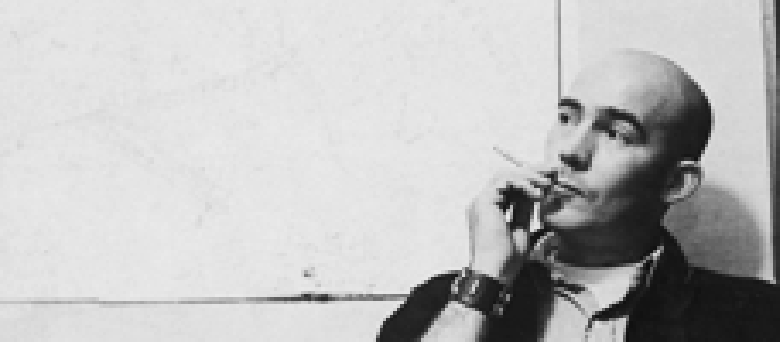Reviews
It seems to me that the writings of Hunter S. Thompson will remain popular for as long as free speech exists. His manic mixture of drug-fueled hilarity and fierce condemnation of political hypocrisy will ensure a perpetual group of new readership from every generation; his intoxicating writing will be forever appealing to the late teenage/early 20-year-old reader on the verge of self-discovery and its accompanying thirst for anti-establishment rhetoric. Personally, when it comes to ‘subjective journalism’ - or Gonzo journalism as his writing has been dubbed - I’m more of the Bill Bryson camp but I can’t deny the prolificacy of Thompson’s writings and that his following is legion.
Thompson made his first mark on the writing scene with Hell’s Angels: The Strange and Terrible Saga of the Outlaw Motorcycle Gangs—an insider’s view on the titular California motorcycle gang whose notoriety was apoplectic. By shadowing the bikers for approximately a year Thompson risked body and mind and clearly, a toll was taken on both. His most widely read book is perhaps Fear and Loathing in Las Vegas, a chronicle of his drug-fueled search for the American dream in the craggy Nevada territory (Terry Gilliam adapted the book into a cult favorite film in 1998 with Johnny Depp playing Thompson’s autobiographical lead character, Raoul Duke). He followed that with the much heralded Fear and Loathing on the Campaign Trail ‘72, a fearlessly searing account of the Democratic primaries.
It’s Thompson’s political contributions/repercussions that fuel the new documentary Gonzo: The Life and Work of Dr. Hunter S. Thompson more than a thrust for a personal biography (for that see 2003’s Breakfast with Hunter, extracts from which are included). Despite tracing events from Thompson’s early 20s up to his suicide in 2005 it’s evident that his brushes with the US government are what interest director Alex Gibney the most. The three pieces of his life that seem to be afforded the most weight are his run for Colorado county sheriff in 1970, his caustic account of the 1972 election and his supposed influence in President Carter’s election.
With Wayne Ewing’s trio of Thompson documentaries (Breakfast with Hunter, When I Die, Free Lisl: Fear and Loathing in Denver) and works by Adamm Liley and Tom Thurman all made in the past decade, the immediate question around Gibney’s offering is: do we really need another Hunter S. Thompson documentary so soon? If you’re a fan of Thompson, the answer is obviously a defiant ‘of course we do!’ Those who aren’t in favor of the man aren’t likely to rush out to see the film but if they do they mind find themselves somewhat swayed by the attention paid to the early days of Thompson’s life rather than his later antics.
The filmmakers have discussed the film as an attempt to display Thompson’s erratic negativity just as much as his positive contributions but despite what they say, it’s hard to find too much negativity about Thompson here; there certainly aren’t any new shocks about his questionable character and those who talk about him don’t seem to harbor much ill-will. When Rolling Stone editor Jann Wenner chronicles Thompson’s infuriatingly unprofessional approach toward deadlines, his waywardness is quickly ameliorated by Wenner’s assurance that Thompson’s writing was so good that his tardiness was just a nuisance and nothing more serious. And while it’s nice that the documentary spares us any “daddy wasn’t there” histrionics from his only son Juan Thompson, there is something quite unnerving about Juan’s statement “It was a shame he wasn’t around more but that’s who he was.” (Juan is currently penning a book about his relationship with his father and from the implications of a recent article, it seems to be almost a laudatory account.)
While the figure of Hunter S. Thompson may already be an overly familiar cinematic subject, what is remarkable about Gonzo is the amount of archival footage that has been included from all stages of his life. Gibney is becoming quite prolific in the field: Oscar nominated in 2006 for Enron: The Smartest Guys in the Room and an Oscar recipient this past February for Taxi to the Dark Side and he must be a very persuasive speaker and surely armed with an unflaggingly diligent team of researchers who have scoured a seemingly gargantuan amount of video footage. The suggested amount of footage of Thompson is shocking, particularly the clips that date back thirty years or so. It’s a testament to Thompson’s character that even back when film was a more precious commodity, people seemed to know that if Thompson was in a room it was worth the expense of turning on a camera.
The most revelatory of this footage is that of early Thompson, particularly television appearances on To Tell the Truth and a talk show confrontation with Hell’s Angels founding member Sonny Barger. These clips are fascinating because they contain a slightly different version of Thompson than we are most familiar with; we see him giving a performance of subtlety and understatement rather than the mania and showboating for which he would become remembered. It’s an amazing opportunity to catch a glimpse of what he was like before he became a “victim of his own persona”; as he is described by Wemmer in one of the film’s closing remarks.
Occasionally Gibney resorts to shock tactics with his onslaught of archival footage (a clip of George Wallace being shot is inserted for little discernable reason) and some of the music choices are a bit obvious but Gonzo is an entertaining documentary that possesses the charming conviction that a talented writer can possess political agency.
We don’t do comments anymore, but you may contact us here or find us on Twitter or Facebook.



